
Radiation Sciences is a discipline offering opportunities for several healthcare careers, depending on skills and education. Radiation Sciences involves diagnostic scans and images, X-rays, as well as treatment therapies. Dependent on your certification, education, and licensure, employment is available in hospitals, outpatient clinics, and physician offices working with patients, physicians, and nurses.
Best Health Degrees researched accredited schools and eligible to offer federal financial aid. Schools will require you to complete the Free Application for Federal Student Aid (FAFSA) to determine your eligibility for funds. Programs offered in this ranking are all accredited by agencies such as The Joint Review Committee on Education in Radiologic Technology (JRCERT), the Commission on Accreditation of Medical Physics Education Programs (CAMPEP), or regional agencies such as the Higher Learning Commission (HLC).
Our Method: Ranking the 10 Fastest Online Radiation Sciences Master’s Programs for 2021
To rank the 10 Fastest Online Radiation Sciences Master’s Programs for 2021, Best Degrees editors researched accredited, trusted programs of all kinds. From our initial pool, we ranked programs according to price, accreditation, reputation, and salary potential, using data from IPEDS and Niche, U.S. News and World Report, and other higher education rating publications.
1. University of Texas M.D. Anderson Cancer Center
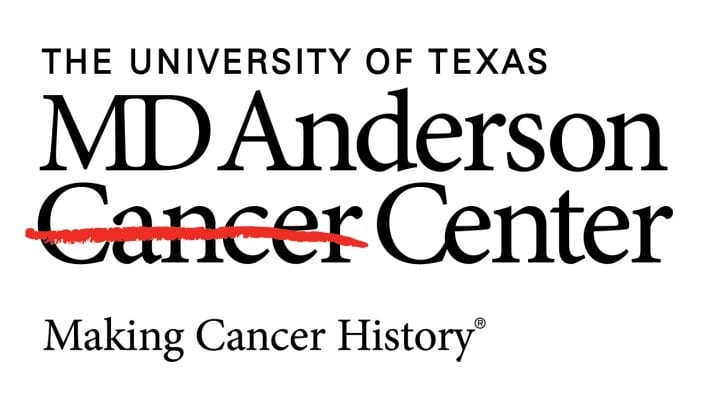
You can earn an M.S. in Radiologic Sciences from one of the nation’s premier medical centers with this hybrid program.
There are two tracks for this 30 credit hours degree in Administrative Leadership or Educational Leadership.
The two tracks share core courses in Strategic Management and Business Policy, Research Methodology, Legal and Ethical Fundamentals of Healthcare. With the administrative track, you’ll study Human Resource Management in Health Professions, Health Resources and Policy Analysis, Health Informatics and Technology Management, an internship, and a thesis. In the educational program, courses Critical Thinking Strategies in Higher Education, Curriculum Development and Evaluation, and thesis as well as an internship. Classes meet ONLY two Saturdays each semester along with weekly online requirements.
To be considered for admission, you’ll need a bachelor’s degree, be credentialed by one of four radiologic registries, and complete an online application (with a $48 fee). A statement of purpose, academic transcripts, three letters of recommendation, and a resume. You’ll meet with the Admissions Review Committee once all documents have been submitted.
Estimated Tuition Cost: $1,600-$6,500/per six semester hours
Fast Fact: M.D. Anderson is recognized by U.S. News and World Report as the #1 cancer center in the country
Click to learn more about this accelerated radiation science master’s!
2. University of Southern California

Here’s an online M.S. in Medical Device and Diagnostic Engineering degree with a focus on the creation of medical devices and medical techniques.
The 26 credit hour curriculum includes core studies in biomedical systems, studies of the nervous system, engineering quality management, product safety, and technology development. You’ll be able to choose from three tracks in regulation, product development, and medical technology. It’s this last track that includes studies in ultrasound imaging, neural implants, applied electrophysiology, and biomedical and nanotechnology. You can complete this degree in three semesters of full-time study.
As with most Radiation Sciences graduate programs, you’ll need a baccalaureate degree from an accredited school in engineering or similar degrees. For admission, you’ll complete an application and submit academic transcripts, GRE test scores, letters of recommendation, a personal statement, and a resume.
Estimated Tuition Cost: $55,848/program cost
Fast Fact: USC is ranked #19 of 1,000 private and public universities by The Wall Street Journal and Times Higher Education
Click to learn more about this accelerated radiation science master’s!
3. Illinois Institute of Technology
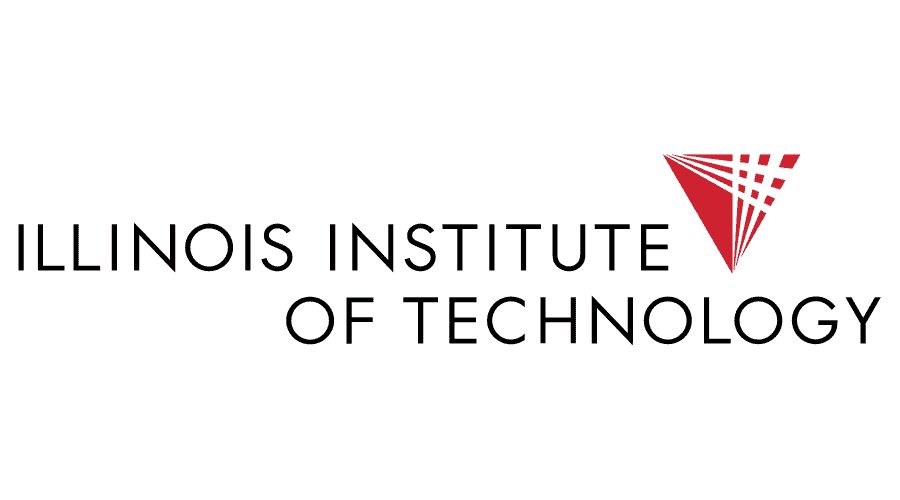
You can earn a professional Health Physics master’s (M.A.S.) from the Physics Department of IIT. There are three tracks to this program in Health Physics, Radiochemistry, and Radiological Security, Emergency Preparedness, and Response.
The Health Physics track involves studies in Radiation Biophysics, Introduction to Health Physics, Radiation Dosimetry, Radiation Instrumentation Lab, etc. Additionally, you can choose from electives in Medical Health Physics, Operational Health Physics, or Environmental Health Physics. The program includes a week-long instrumentation course and optional lab work in radiochemistry. This curriculum, depending on your specialization requires 32 credit hours.
You need to have completed classes in calculus or calculus-based physics and basic quantum mechanics study is recommended for admission. GRE test scores are waived for 2021 due to the pandemic, and a baccalaureate degree in biology, engineering, chemistry, or biology are necessary. A 3.0 academic GPA is required.
Estimated Tuition Cost: $29,487/per academic year
Fast Fact: IIT is rated #39 in U.S. News and World Report’s Best Value Schools
Click to learn more about this accelerated radiation science master’s!
4. The University of Oklahoma

The College of Medicine at Oklahoma University has a Master of Radiological Sciences degree which requires 32 credit hours.
Some of the courses offered are Radiation Protection and Shielding in Medical Installations, Clinical and Radiological Anatomy, Radiological Physics of Magnetic Resonance, Ultrasound, Seminar in Radiological Sciences, Diagnostic Radiology, Pattern Recognition and Image Processing, Decision Theory In Radiological Sciences, and a Research Thesis. You’ll be required to present an annual seminar as well as participate in the seminars.
You’ll submit an admission application, academic transcripts with at least a 3.0 GPA, GRE/MCAT test scores, and other documents as requested.
Estimated Tuition Cost: $5,119-$19,778/per academic year
Fast Fact: OU’s Niche ranking is #46/676 in Top Public Universities in America
Click to learn more about this accelerated radiation science master’s!
5. Oregon State University
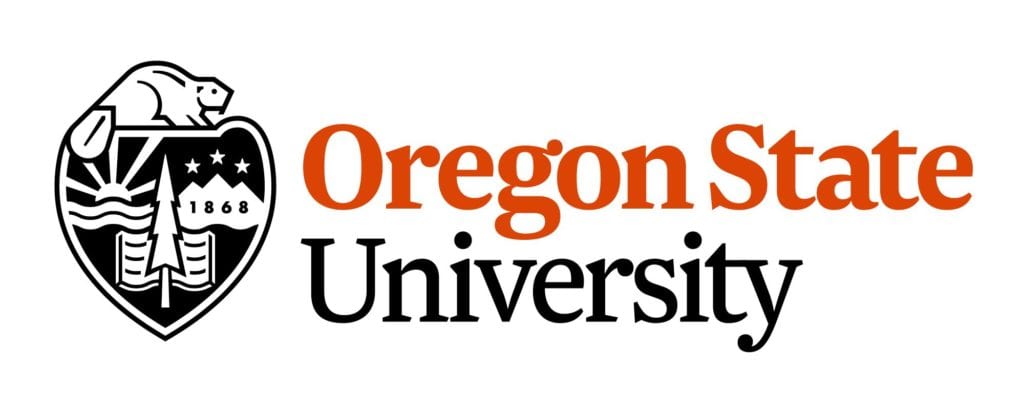
If you’re looking for an online graduate degree in radiation health sciences, you’ll want to look at the M.S. or M.H.P. in Radiation Health Physics from Oregon State University.
The 45 credit hour curriculum offers classes in Radiophysics, Applied Radiation Safety, Radioecology, Radiation Biology, Radiochemistry, Internal Dosimetry, Advanced Radiation Detection and Measurement, as well as a seminar and electives. The M.S. requires a written thesis and the M.H.P. degree, in lieu of a thesis and culminates with a comprehensive oral exam. Both the M.S. and M.H.P. are considered terminal degrees. The department strongly encourages online students to pursue the M.H.P. degree option.
Graduate admission requirements requires you have a baccalaureate degree with at least a 3.0 GPA. If your GPA is less than 3.0, Oregon State University recommends you take the GRE exam. You’ll pay a $75 non-refundable fee along with the OSU Graduate School application and submit academic transcripts and three letters of recommendation.
Estimated Tuition Cost: $12,933-$24,975/per academic year
Fast Fact: Niche ranks OSU #78 among its Top Public Universities in America
Click to learn more about this accelerated radiation science master’s!
6. Rochester Institute of Technology
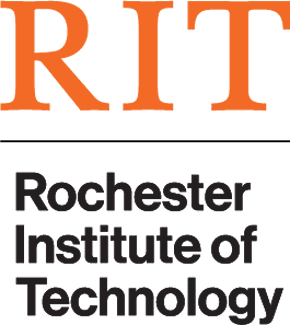
Rochester Institute of Technology has an online M.S. in Imaging Science and boasts of skills most sought after by employers.
The curriculum allows you to choose between either a project or thesis option. Other than the end requirement, the curriculum for the two options are the same. You’ll study Fourier Methods for Imaging, Optics for Imaging, Image Processing and Computer Vision, and Radiometry as well as the Human Visual System. The thesis option allows you to do your research where you work. This curriculum wasn’t developed in a vacuum, but is the result of a collaboration with industry experts in management, science, and engineering.
You can make an application to this program if you hold an undergraduate degree. You’ll begin with submitting an application with a $75 application fee, resume, letter of recommendation, academic transcripts, and you may be asked to submit GRE test scores. Additionally, you may asked to provide other documentation as requested, such as a writing sample or portfolio.
Estimated Tuition Cost: $1,191/per credit hour
Fast Fact: This school was ranked as one of The Best Value Colleges: 200 Schools with Exceptional ROI for Your Tuition Investment by The Princeton Review
Click to learn more about this accelerated radiation science master’s!
7. Loyola University Chicago
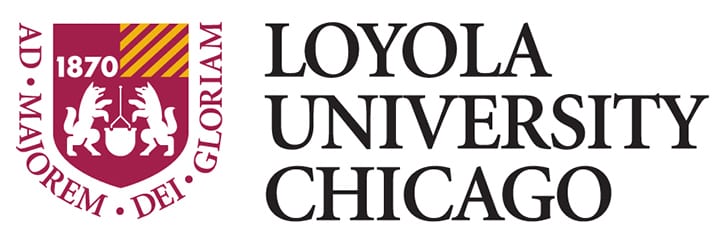
As a hybrid program, you can earn an M.S. in Medical Physics through Loyola’s Parkinson’s School of Health Sciences and Public Health.
Core coursework includes studies in biostatistics, radiation therapy physics, physics in medical imaging, radiation/cancer biology, radiation protection and safety. You can choose between two practicum experiences in either Physics and Mathematics of Medical Imaging or Physics in Radiation Therapy. You’ll work with a faculty advisor to develop a capstone project, develop a topic, conduct research, and finish with a paper that would qualify for publication in one of the field’s professional journals.
You need either an undergraduate or graduate degree in Physics for admission to this program. Additionally, you’ll need to submit GRE test scores, a GPA of 3.0 or better, and three letters of recommendation. You’ll submit an application (there is no application fee) and provide academic transcripts and other requested documents as needed.
Estimated Tuition Cost: $18,594/per academic year
Fast Fact: Forbes ranked Loyola University Chicago #248 of its Top Colleges list
8. Quinnipiac University

This M.H.S. in Advanced Medical Imaging and Leadership, will let you explore organizational leadership opportunities in the imaging field. The program blends technical expertise with business education.
You can concentrate in imaging specialties such as Computed Tomography, Women’s Imaging, and Magnetic Resonance Imaging. The curriculum will vary, depending on your specialty choice. Courses offered by QU’s School of Health Sciences include Advanced Sectional Anatomy, Foundations for Decision Making (MBA Quick Start), Organizational Behavior and Leadership for Decision Makers, Clinical Experiences, Pathology for CT and MRI Technologists, Bone Densitometry, Women’s Health and Imaging, and Capstone Projects. Depending on specialty, the program lasts anywhere from 39-44 credit hours.
Quinnipiac University has a rolling admission policy. Admission criteria ask for a bachelor’s degree, current registration with the American Registry of Radiologic Technologists (ARRT) in good standing, and licensure. Some prerequisites are necessary in physics or chemistry, biology (and anatomy and physiology), and college-level mathematics.
Estimated Tuition Cost: $1,075/per credit hour
Fast Fact: Forbes ranked Quinnipiac University #215 in its Top Colleges
Click to learn more about this accelerated radiation science master’s!
9. University of Findlay

This Master of Science in Radiologic Sciences from the University of Findlay was created for nuclear medicine technologists to provide advanced training in Magnetic Resonance (MR), Positron Emission Tomography (PET), and Computed Tomography (CT) techniques.
The program is completely online but does include clinical experiences. You’ll take core courses in Image Processing and Quality Analysis, PET Procedures, Pharmaceuticals and Radiopharmacy, Cross-Sectional Anatomy, as well as electives. You can choose two electives from topics in managed care, healthcare finances, or healthcare regulations. You should be able to complete the graduate degree in two years. The curriculum will qualify you to be certified by the American Registry of Radiologic Technologists (ARRT) and/or Nuclear Medical Technology Certification Board (NMTCB).
Documents you’ll need for admission will include official academic transcripts or you can apply through the Centralized Application Service application. You should contact the school for additional application requirements.
Estimated Tuition Cost: $530/per credit hour
Fast Fact: University of Findlay ranks #367/1,572 in Niche’s Best Value Colleges in America
Click to learn more about this accelerated radiation science master’s!
10. University of North Carolina at Chapel Hill

If you’re looking to work as a Radiologic Assistant, this M.S. in Radiologic Science will take 24 months to complete.
The program has online classes and “web-based instruction with a radiologist- directed clinical preceptorship” and is hybrid in design. You will need to be on campus for 1-2 seminars each semester. The curriculum will include Advanced Pathophysiology, Thoracic Imaging Principles, Abdominal Imaging and Procedures, Musculoskeletal Imaging and Procedures, Advanced Pathophysiology, as well as four Practicum experiences. The American Registry of Radiologic Technologists (ARRT) accredits this program and will prepare you with the tools to assume more responsibility working with medical staff, patients, and administration.
You must have a current ARRT certification to qualify for admission, an undergraduate degree with a 3.0 GPA, and at least one year of medical imaging work experience. Other documents you’ll submit include an application and a non-refundable $95 application fee, resume, academic transcripts, and letters of recommendation. The GRE/GMAT tests are not required.
Estimated Tuition Cost: $10,552-$28,278/per academic year
Fast Fact: Niche considers UNC-Chapel Hill #7/676 in its Top Public Universities in America ranking
Click to learn more about this accelerated radiation science master’s!
What are the Advantages of an Accelerated Radiation Science or Therapy Masters?
In healthcare, advanced education is always a plus. Most clinical leadership positions in the field are held by people with masters or doctorate degrees in their field.
Accelerated clinical programs in Radiation Sciences or Therapy, offer concentrated studies in the latest technology, techniques, and applications in the field. Working in Radiation Sciences and/or Radiation Therapy requires advanced studies in physics, anatomy, physiology, and clinical experiences.
You can earn a graduate degree in one to two years, frequently online, while you continue to work. The rewards can be seen in increased salary, career advancement, and most importantly, improved patient care. Advanced training will provide you familiarity with the ever changing, current radiation sciences technology in CT scanners, linear accelerators, MRI, PET, etc.
School cost is always an issue and the less time you spend in school, the easier it is on your budge. If you’re presently working in the field, your employer may offer tuition assistance help to advance your education. Frequently schools offer accelerated and online degrees at in-state student tuition.
What Can I Do with a Master’s in Radiation Science or Therapy?
The Bureau of Labor Statistics estimates job growth in this field to be a faster than average 7% from 2019-2029. U.S. News and World Report suggests careers in some of the Radiation Sciences field, rank high in job satisfaction and opportunities. Radiation Therapy ranks #28 in Best Health Care Jobs, radiology technology jobs rank #13 in Best Health Care Support Jobs, and #71 in 100 Best Jobs in U.S. News and World Report’s categories.
Employment in this specialty can be found, depending on your licensure and certifications, in hospitals, women’s breast centers, outpatient clinics, cancer centers, and physician offices. Salaries vary, often directly influenced by your educational level and experience. PayScale cites median, annual compensation for Radiation Therapists at $73k, Chief Radiation Therapists $78-99k, Medical Physicists $161k, and Dosimetry $100k.
If you’re considering a graduate degree in a radiation sciences field, chances are you’re wanting to expand your career opportunities. A masters in radiation science will give you a leg up in advancing your job prospects.
What Jobs Can I Get with a Masters in Radiation Sciences?
Master degrees in Radiation Sciences can lead to advanced career options in radiology and radiation therapy in management, supervision, or department head. Additionally, careers can be found as a Radiologic Educator or Radiologic Administration.
The advanced degree will qualify you to assist hospital or clinic-based radiologists, manage radiology departments and/or clinics, or teach radiology on the community college or university level.
Radiologic Administrator – A combination of licensure, certification, and master’s degree can qualify you to fill administrative positions in radiation sciences in radiology and radiation therapy. An administrative radiation sciences degree will acquaint you with personnel management, finance and budgets, leadership and communication, and more. Perhaps, one of the major benefits of this degree track is the development of skills to establish policies and procedures affecting imaging and therapy departments.
Radiologic Educator – The education track of radiation sciences will prepare you for a career teaching or to take the lead in developing radiologic sciences programs, develop radiology studies in diagnostic imaging, administration, develop curriculum, etc. Job opportunities can be found in community colleges, universities, technical schools, hospitals, and healthcare systems.
The American Association of Physicists in Medicine offers career services for licensed and certified Medical Physicists.
Related Rankings:
25 Best Radiation Sciences Master’s Programs